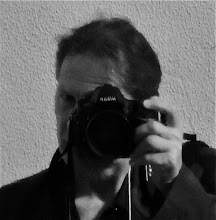28 September 2009
27 September 2009
Multilingualism & education
Todo Alemán: With Soccer and Fun to Multilingualism
 Anyone who has grown up bilingual knows the advantages of multilingualism and is also well prepared for learning additional languages. The Goethe Institute’s new young people’s website „Todo Alemán“ is banking on this fact. This interactive portal is aimed at young people in the USA, Canada and Mexico.
Anyone who has grown up bilingual knows the advantages of multilingualism and is also well prepared for learning additional languages. The Goethe Institute’s new young people’s website „Todo Alemán“ is banking on this fact. This interactive portal is aimed at young people in the USA, Canada and Mexico.„Todo Alemán“ can be translated as „Everything German,“ but can also be read as „To Do Alemán,“ in other words, „Doing German.“ Todo Alemán is part of the project, „Languages Without Borders,“ with which the Goethe Institute promotes the benefits of multilingualism and cultural pluralism. In the USA, the Goethe Institute is striking out on new paths: “Here, competing with Spanish as a second language is pointless; instead, young people should come to see German as an attractive choice in a world of multilingualism, and as an opportunity to develop into citizens with a more global outlook,” says Michael Höfig, project director and creative head of Todo Alemán.
Spotlight on soccer
The website’s core target group is young people from Latin American immigrant families who already speak Spanish and English and who, based on their personal histories, often have a strong interest in learning foreign languages. Thus the website also has content for those who might not be willing to learn German immediately, but who are still interested in „everything German“ – whether soccer, fashion, or pop music.

Above all, soccer plays a key role. Höfig, who is also a licensed soccer trainer, believes in the power of the round leather ball to bring people together: „Soccer is the world’s first language. Soccer has increasingly developed into a medium that connects the world. If we make soccer a central element of Todo Alemán, then hopefully its effect in the digital world will be similar to its effect in the real world. We are doing more than just presenting soccer as a sport. We tell stories that deal with soccer, stories about people and cultures.“
Like Facebook, but with specific impulses
In particular, it is hoped that reportage about North and South American soccer stars in the German Soccer League will attract young soccer fans to Todo Alemán’s pages. To offer them exclusive contents, Todo Alemán is cooperating with the German Soccer League GmbH, which organises professional soccer matches in Germany.
Todo Alemán has adopted elements of popular social networks such as Facebook, MySpace and StudiVZ: under the rubric „My Club“ young people can log in, communicated with each other, and exchange videos and photos. Todo Alemán differs from commercial networks in that a Goethe Institute editorial team specifically initiates creative projects for it. In summer 2009, for instance, the editorial board organised a competition in which young people wrote and filmed their own telenovelas. In a pilot phase, high school and college teachers tested Todo Alemán with their classes.
The pilot phase even booked an initial success story: Florida’s first “green” school, the Terra Nova Environmental Reasearch Institute in Miami, included German in its curriculum based on its work with Todo Alemán. “German as a foreign language fits perfectly in a school that defines its purpose according to the motto “environment and technology,” says Juan Carlos Morales, who teaches German and coordinates German studies at Florida’s leading-edge green school.
Learning 2.0
 Additional efforts apart from the launching of Todo Alemán are needed, not only to spark high school students’ curiosity about Germany and its language, but also to have American high school administrations and above all, colleges, view German language instruction as an attractive option. “In continued teacher training, we consistently emphasise activity-based concepts. We show German teachers how to design instruction to be so appealing, modern and interactive, that the coming student generation will also choose German as a foreign language because it is current and familiar: German classes are exciting, learning German is fun,“ explains Michael Höfig.
Additional efforts apart from the launching of Todo Alemán are needed, not only to spark high school students’ curiosity about Germany and its language, but also to have American high school administrations and above all, colleges, view German language instruction as an attractive option. “In continued teacher training, we consistently emphasise activity-based concepts. We show German teachers how to design instruction to be so appealing, modern and interactive, that the coming student generation will also choose German as a foreign language because it is current and familiar: German classes are exciting, learning German is fun,“ explains Michael Höfig.But this expert in didactics does not want Todo Alemán to be seen as just a non-binding initiative with a fun factor. Instead, he sees offers such as Todo Alemán as building blocks of a new philosophy of learning firmly based on interactivity. “After all, we are dealing with the Web 2.0 generation, and it is important for us to reach out to young people in the medium in which they feel at home and move with confidence.”
Goethe-Institut e. V., Online-Redaktion
September 2009
September 2009
Subscribe to:
Posts (Atom)

